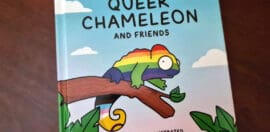Doco of the Month: Incarceration Nation

24 November 2021 at 4:40 pm
Those behind Incarceration Nation believe it’s time to put our nation’s justice system on trial. Director Dean Gibson and producer Helen Morrison talk to Wendy Williams about why it’s a story that needs to be told.
Incarceration Nation is difficult to watch.
Told by Indigenous Australians, the documentary lays bare the story of the continued systemic injustice and oppression experienced by Aboriginal and Torres Strait Islander peoples on their own land.
It connects the dots between colonisation and the ongoing trauma and disadvantage experienced by Aboriginal people – two key drivers of incarceration.
It makes the case that the justice system is not broken, it is working the way it was designed to.
Writer and director and Guugu Yimithirr man Dean Gibson, says Australia was founded by the British with one clear purpose – to create a prison island.
“Over 200 years later, not much has changed. Rather than housing criminals from England, we are filling our jails with our most vulnerable and disadvantaged population,” he says.
“For those in mainstream Australia, this crisis has felt like an overnight catastrophe linked to alcohol and unemployment. But the reality behind Aboriginal incarceration tells a different story, a story that dates back well beyond the advent of modern prisons, government programs and support services.”
While Aboriginal and Torres Strait Islander peoples represent just 3.3 per cent of the Australian population, Indigenous men make up 27 per cent of prisoners and Indigenous women constitute 34 per cent of prisoners.
When it comes to children, approximately 65 per cent of incarcerated 10 to 13 year olds in Australia are Aboriginal or Torres Strait Islander.
While people may be familiar with some of the statistics or stories, Incarceration Nation brings it all together through archive footage and interviews with experts, academics and those who have been harmed by racism in the justice system, to powerful effect.
Producer Helen Morrison says they wanted to highlight the connection between government intervention and legislation, and how that has created an overrepresentation of First Nations people in the justice system.
“I think there has been disparate information all over the place, and the film unites all that information, and it has always for us been a discussion starter,” she tells Pro Bono News.
“We don’t ask people to feel guilty about the past, but we can change the narrative and be understanding and aware now. It changes your perspective.”
Read more: The Indigenous-led solutions being pushed to the back of decision making
Gibson points out that neither of them have a background in justice and says they both came into the process pretty blind.
“You hear those numbers but until you actually delve deep into the stories and information, the impact of those numbers don’t resonate as hard as they probably can,” he says.
“I think another important thing to know is that, and I don’t have the data on this or the facts, but it’s probably fair to say that not all Aboriginal people are aware of that story either.
“I think we’ve all had little fragments. But unless, like the people we spoke to, you live and breathe it on a daily basis, it is hard to be truly fully aware of what is playing out across the nation. Because it is so complex, there are so many parts to it, so many moving things that can apply to it.”
Both Gibson and Morrison agree that the intention of the film, which was several years in the making, was never to impose their own ideological beliefs on what needs to be fixed, but just to lay out the facts.
Gibson says he wanted it to be a slow squeeze.
“We gave people a few moments of release but all in all I think the squeeze gets tighter and tighter so people can feel some level of what it is like to be on the other side of that. And to live that and hear that and share that and be part of that,” he explains.
“Then we talked about how much hope we lay up at the end of it. We don’t want to try and pretend that it’s all strawberries and ice cream, it’s not. We know that there is a lot of work to be done and there are still a lot of people who are choosing to not even look at the problem.
“[But] it’s actually about finding the strength within and it’s about showing Aboriginal people particularly who are watching that all is not lost. As much as you feel as though the world is caving in around you on this topic, there is this thing called identity, culture and community and that is still strong and that still exists and that’s what you can build the next chapter on.”
Gibson told Pro Bono News a big part of the film, which premiered on NITV earlier this year, was putting Aboriginal voices front and centre.
“Quite often it is a story told from another perspective, an outsider’s perspective, a perspective of bureaucrats or Canberra, or whatever it is, so I think that really was the big goal for me,” he says.
“Even moving forward, that’s still the goal, to share that authentic Aboriginal lived voice that is showing people that this is more than just numbers or data or policy, that this is actually lived real moments.”
Amplifying First Nations voices is also at the heart of the impact campaign that has been built around the film.
Under the hashtag #RaiseYourVoice, the campaign takes people through a series of actions – truth-telling, anti-racism, speaking up, and supporting Indigenous voices and solutions – with the aim of driving meaningful shifts in our justice system and nation.
There are a number of ways for people to engage with the film and the broader issues it brings up: from watching and sharing the documentary or hosting a screening, to taking a survey, signing petitions, writing to MPs or donating to Indigenous-led organisations.
Morrison says there are a number of key objectives driving the campaign:
- to challenge existing narratives of Indigenous incarceration and tell the truth of Australia’s history, increasing understanding of Indigenous experiences, historical trauma and the systems that still impact First Nations People today;
- to reveal the impacts of incarceration on individuals, families and communities and restore dignity to those who have been impacted;
- to support organisations and campaigns in the Indigenous justice space, particularly Indigenous and community-led orgs and movements; and
- to encourage and facilitate learning.
She says the film could be used by their many impact partners in lots of different ways. The aim is just for the documentary to be a jumping off point to create conversations and change.
Morrison says she wants people to feel like they know a bit more than when they went in, and hopefully become more understanding.
“It’s interesting how many ‘I’m not racist, but…’ conversations I have had with people I know very well. It’s shocking. I kept saying wait until you see the film, then can we have this conversation. Because it is about empathy and understanding and combating the lies that perpetuate around community,” she says.
Her hope is that people who have watched the film share what they have learned with those around them.
“If it’s just one thing that they took away from the film, tell a friend,” she says. “That is how we can reverse some of the lies that have been told.”
Trailer:
To find out more about the film visit the website here.
Watch Incarceration Nation on SBS On Demand.
Each month Pro Bono Australia and Documentary Australia Foundation present a Doco of the Month, profiling powerful documentaries with social impact at their heart.
Documentary Australia Foundation is Australia’s only not-for-profit organisation that fosters social change through documentary storytelling.







